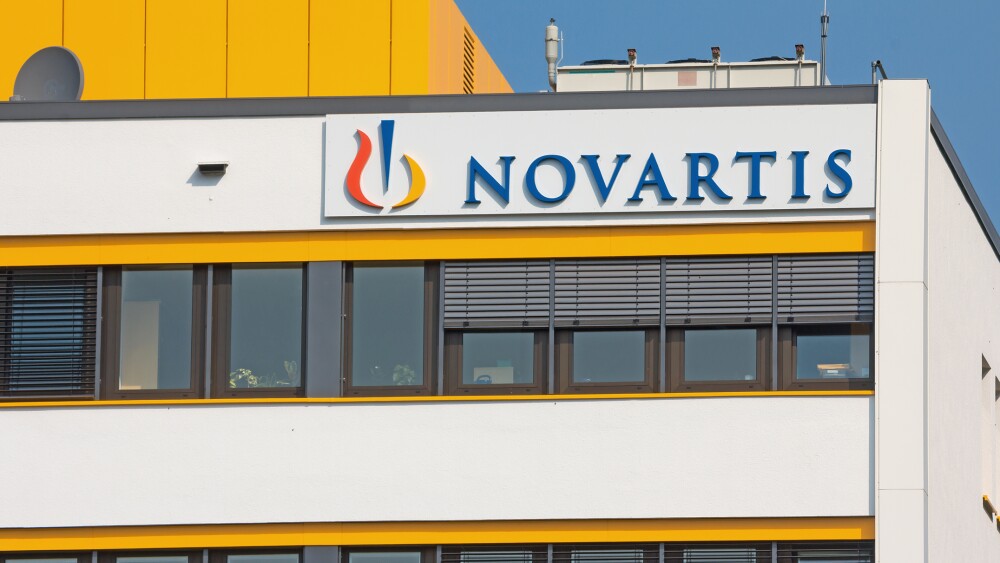“Data from the CLL8 trial suggest that MabThera used in combination with chemotherapy has the potential to become the standard of care for the treatment of CLL”, said Professor Michael Hallek, University of Cologne, Germany, who led the German CLL Study Group (GCLLSG) in conducting the CLL8 trial. “Today’s approval will make the best treatment, MabThera plus chemotherapy, available to patients with CLL across Europe”.
The results showed that patients receiving MabThera in combination with chemotherapy as first-line treatment lived an average of 40 months without their cancer progressing compared to an average of 32 months for patients receiving chemotherapy alone.1 At present, CLL is considered incurable and the aim of treatment is to control the disease by managing symptoms and extending the time patients live without their disease worsening. The results of CLL8 demonstrate that patients treated with MabThera lived longer without their disease progressing, reducing the number of frequent hospital visits.
“Today’s approval of MabThera in CLL is great news for patients suffering from this devastating disease. We have seen MabThera transformed the lives of more than 1.5 million patients with non-Hodgkin’s lymphoma (NHL) and we hope this approval will bring about a similar change for people suffering from this condition”, said William M. Burns, CEO, Roche Pharmaceuticals Division.
CLL is the most common type of leukaemia in adults, accounting for approximately 30-40% of all forms of leukaemia in Western countries.2 Overall incidence of CLL is around three per 100,0003 and is 30% more common in men than women.2 It mainly affects the elderly with 70-80% of patients diagnosed after the age of 553 and it is most commonly diagnosed between 65 and 70 years of age.3 While CLL is generally considered a disease that is slow to progress, a significant proportion of patients have rapidly progressing forms of the disease.3
Earlier this year Roche submitted a Marketing Authorisation Application (MAA) to the European Medicines Agency (EMEA) for the use of MabThera in patients who have previously been treated for their CLL but whose cancer has returned.
About CLL8
The CLL8 study is an international study conducted by the German CLL Study Group and Professor Michael Hallek (University Hospital Cologne, Germany) in collaboration with Roche. It included 817 patients with CLL receiving first-line treatment. The study was conducted at 191 study sites across 11 countries. In this randomised study, patients received either MabThera in combination with chemotherapy (fludarabine and cyclophosphamide) or chemotherapy alone. The primary endpoint of the study was progression-free survival. No new or unexpected safety signals were observed.
About MabThera
MabThera is a therapeutic antibody that binds to a particular protein - the CD20 antigen - on the surface of normal and malignant B-cells. It then recruits the body's natural defences to attack and kill the marked B-cells. Stem cells (B-cell progenitors) in bone marrow lack the CD20 antigen, allowing healthy B-cells to regenerate after treatment and return to normal levels within several months.
In oncology, MabThera is indicated:
• For the treatment of previously untreated patients with stage III-IV follicular lymphoma in combination with chemotherapy
• As maintenance therapy for patients with relapsed/refractory follicular lymphoma responding to induction therapy with chemotherapy with or without MabThera
• For the treatment of patients with CD20 positive diffuse large B cell non-Hodgkin’s lymphoma in combination with CHOP (cyclophosphamide, doxorubicin, vincristine, prednisolone) chemotherapy
• As monotherapy for treatment of patients with stage III-IV follicular lymphoma who are chemoresistant or are in their second or subsequent relapse after chemotherapy.
In addition, in rheumatology, MabThera in combination with methotrexate, is indicated for the treatment of adult patients with severe active rheumatoid arthritis who have had an inadequate response or intolerance to other disease-modifying anti-rheumatic drugs (DMARD) including one or more tumour necrosis factor (TNF) inhibitor therapies.
MabThera is known as Rituxan in the United States, Japan and Canada. To date, more than 1.5 million patients have been treated with MabThera worldwide.
Genentech and Biogen Idec co-market Rituxan in the United States, and Roche markets MabThera in the rest of the world, except Japan, where MabThera is co-marketed by Chugai and Zenyaku Kogyo Co. Ltd.
About Roche
Headquartered in Basel, Switzerland, Roche is one of the world’s leading research-focused healthcare groups in the fields of pharmaceuticals and diagnostics. As the world’s biggest biotech company and an innovator of products and services for the early detection, prevention, diagnosis and treatment of diseases, the Group contributes on a broad range of fronts to improving people’s health and quality of life. Roche is the world leader in in-vitro diagnostics and drugs for cancer and transplantation, and is a market leader in virology. It is also active in other major therapeutic areas such as autoimmune diseases, inflammatory and metabolic disorders and diseases of the central nervous system. In 2008 sales by the Pharmaceuticals Division totalled 36.0 billion Swiss francs, and the Diagnostics Division posted sales of 9.7 billion francs. Roche has R&D agreements and strategic alliances with numerous partners, including majority ownership interests in Genentech and Chugai, and invested nearly 9 billion Swiss francs in R&D in 2008. Worldwide, the Group employs about 80,000 people. Additional information is available on the Internet at www.roche.com.
All trademarks used or mentioned in this release are protected by law.




